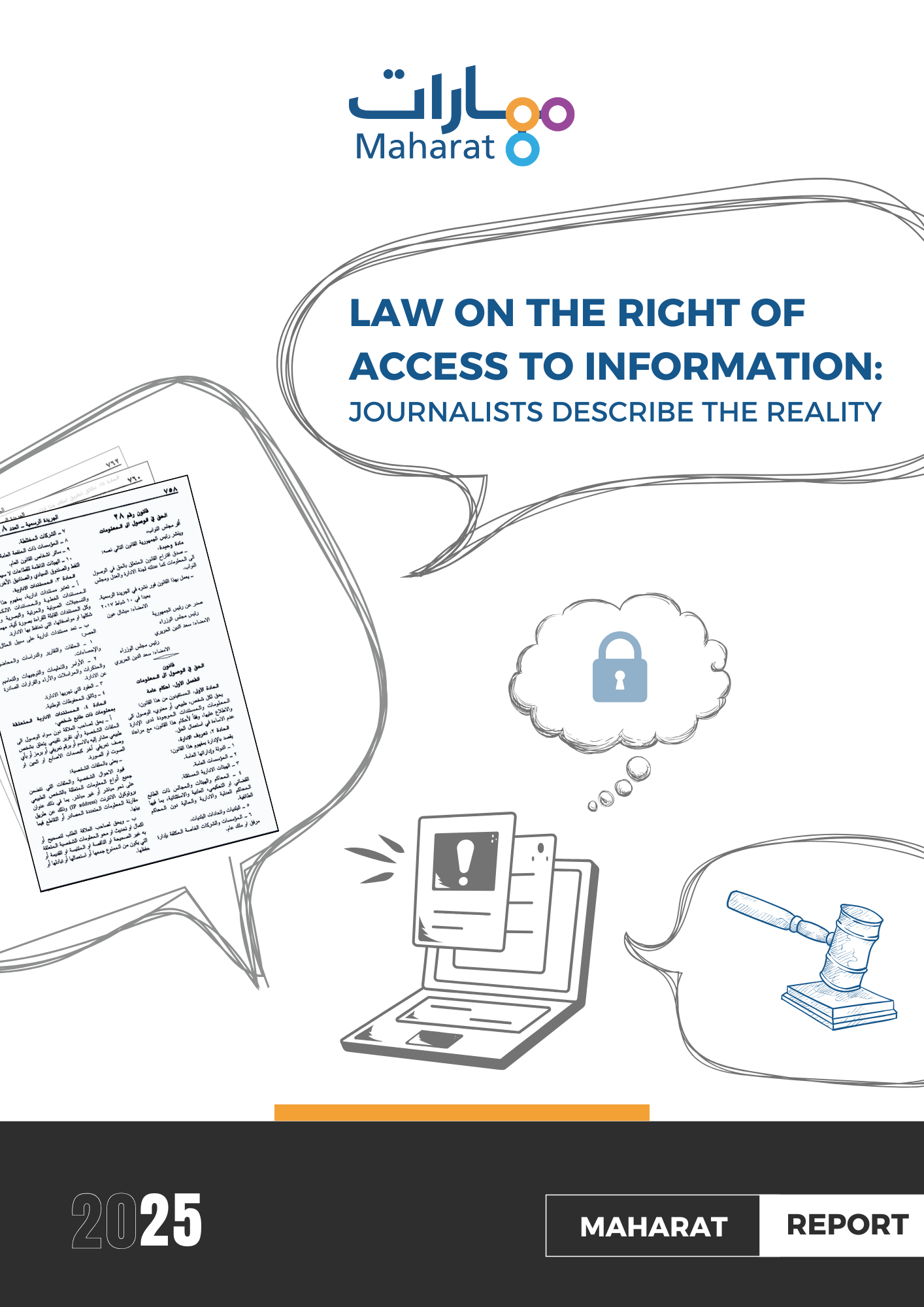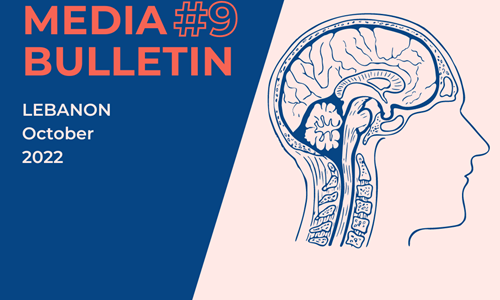
Law on the Right to Access Information: Journalists Describe the Reality
The report “Law on the Right to Access Information: Journalists Describe the Reality” examines the state of implementation of the right to access information law in Lebanon through the experiences of journalists who participated in fellowships organized by Maharat Foundation. These journalists attempted to obtain information related to fiscal transparency, reforms, governance, and aid during the war, but faced major obstacles at the level of public administrations. Despite the law having been enacted years ago, its implementation remains weak and riddled with shortcomings, limiting journalists’ and citizens’ ability to exercise oversight, demand accountability, and monitor public performance.
Among the main challenges highlighted in the report is the failure of administrations to comply with the principle of proactive disclosure, which is supposed to make documents, records, and official decisions available in advance. In addition, many websites are either outdated or lack search functionality, or publish information in non-copyable or non-searchable formats, making it difficult to analyze the data. The report also sheds light on the poor responsiveness of administrations to information requests, which are sometimes rejected without justification, forgotten in drawers, or delayed in response — despite the law clearly stating a 15-day deadline for responses, extendable only once.
The journalists’ experiences reveal the absence of a unified mechanism for handling requests and inconsistencies in administrative behavior depending on who submits the request or the type of information sought, reflecting a clear pattern of selectivity and arbitrariness. Report data shows that 70% of information requests received no response, while only 11% were answered within the legal timeframe. The Official Gazette is also cited by failing to provide its content in a free, electronically accessible, and searchable format, posing an additional challenge.
Structural challenges also emerged, such as the lack of trained staff within public administrations to receive and process information requests, and the absence of digital infrastructure in some municipalities and institutions to store or publish information.
On the other hand, the report reveals weaknesses among journalists themselves in terms of knowledge of the law and limited reliance on it in their work, due to lack of support from their institutions or insufficient training.
While there are some positive examples — such as the Public Procurement Authority or certain aid platforms — most journalists do not make use of these tools either due to lack of awareness or lack of trust in their actual impact.
In light of this reality, the report recommends a set of measures to ensure proper implementation of the law, most notably: the development of updated digital platforms for public administrations, the appointment of specialized staff to receive and respond to requests, the creation of a unified electronic registry to document and analyze requests, updating the legislative framework to keep pace with digital transformation, strengthening tools for community oversight, activating the role of the Anti-Corruption Commission, training journalists on how to use the law, and enhancing public communication mechanisms within administrations.
The report concludes that the right to access information remains obstructed in Lebanon due to a combination of legal, technical, structural, and cultural barriers — making it essential to have serious political and institutional will to ensure transparency and empower citizens to hold authorities accountable.
This report is supported within the German Federal Foreign Office's funds by ifa (Institut fur Auslandsbeziehungen), zivik Funding programme.
Read the report:
Law on the Right to Access Information: Journalists Describe the Reality





